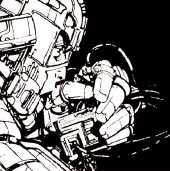The label Harthouse was founded in 1992 in Frankfurt/Offenbach by Matthias Hoffmann, Heinz Roth and the well known Frankfurt DJ Sven Vaeth. Harthouse, in the early years from 1992 to 1997 a sublabel of Eye Q Records, was a plattform for young newcomer artists. It was designed for the more harder, more minimalistic sound, the sound that didn't fit into the commercial line of Eye Q Records.
Sven Vaeth commented on this:"We wanted to create a stage, a playground - even an experimental one - and I think we quite succeeded." In the beginning Harthouse defined a sound that today is well known as the "Sound Of Frankfurt", a harder but danceable version of "Trance" - "Hardhouse" or "Harthouse". The first release was produced by the Harthouse A&R himself, Sven Vaeth. His co-producer up to year 2000 was Ralf Hildenbeutel, known from todays "Schallbau". Sven Vaeth also had different projects on Harthouse together with the other "Schallbau"-members Steffen Britzke (alias B-Zet) and Matthias Hoffmann (alias AC Boutsen).
From the very beginning Sven Vaeth decided on what was released on Harthouse and what was not. In the first years Harthouse releases were kept heavily limited, around 2000 copies each release. The labels promo-list was also kept small. In a very short time Harthouse became the "flag-ship" of German Techno.
The label became well known and it's artists achieved world fame and success on international charts.Due to the limited copies and quality releases, demand rose rapidly. The real first big success was Hardfloor's first release "Hardtrance Acperience" (1992,HH-008). While hardly noticed in Germany, it moved into British charts (1992/93, No. 56) after having been re-released there half a year later. To oppose the trend to produce with constantly growing speed from track to track was a revolutionary idea in 1992. Up to today there is an international demand for remixes created by "Hardfloor" (Ramon Zenker & Oliver Bondzio). Examples are Mory Kante, The Shamen and Anne Clark. Then one hit followed the other: Arpeggiator's "Possible future of mankind" (HH-016), Hardfloor "Trancscript" (HH-019) (place 72 on Brit. Charts 1993) or Resistance D. "Human E.P" (HH-020).
Due to the fast worldwide success foreign departments were founded in 1992: "Harthouse UK" in England, distributed by "Rising High", and "Harthouse America" in the states in a licence-deal with with "Moonshine Music". But soon in 1994 the deal with "Rising High" was canceled and Harthouse reopened an own department in the UK. The cooperation with "Moonshine Records" in America like in the UK appeared not to be successfull too.
1997 was the worst year for Harthouse. Artists were not paid, but given hope to. At the beginning of 1997 complete confusion showed up: Sven Vaeth left the label. The firm moved from its vast office in Offenbach to Berlin. Two months later the firm was insolvent, and filed for bankruptcy. The artists could not be paid or were put off with ridiculous sums. The managing directors proved unwilling to comment on the reasons for the bankruptcy. But the tremendous discrepancies between aims and reality are obvious: on one hand they wanted to be a German techno Underground Label - on the other - they rented a multi story office that had to be payed for; they cut down sales by limitation while the managing directors started to jet to their branch-offices in the UK and US. To all parties concerned it was obvious: this could not work out. Limitation was stopped fast enough but the move to a smaller office came too late. Only a few people know why the labels sales in Germany petered out.
Sven Vaeth, when asked about his bailing out, mentioned conflicts of interest between his partners and himself as well as serious doubts about the discrepancies between his initial dreams that had given him power & crude reality of the whole affair.
At the beginning of 1998 the Under Cover Music Group (UCMG) took over the rights to use the brand name of the label as well as the trade mark "Harthouse". For UCMG the essential point of this deal was the assurance of giving back the artists/authors the right of use on their titles - UCMG edited a "Retrospective Box", a collection of the most successful releases of Harthouse.
After the Retrospective Compilations Harthouse/UCMG started a new line of single releases as well as a few albums and promos. A&R of the new Harthouse was Oliver Bondzio. The design of the releases was changed from the minimalistic black sleeves with the blue Harthouse-logo to white sleeves with gray Harthouse-logo.
The releaselist was kept short at all. In the few years from 1998 up to 2003 where Harthouse existed under UCMG, there only appeared 9 singles, a few albums and, what was new at Harthouse at all, a few DJ Mix-CDs mixed by various DJs like Oliver Bondzio, Frank Lorber and Plank. There also appeared one foreign release by Hardfloor under Harthouse UK, by the english UCMG department.
In 2001 Harthouse/UCMG started to re-release some of Hardfloors old albums (TB Resuscitation Remastered and Respected Remastered) which had appeared under Eye Q in the early 90's. In early 2003, UCMG started to get into financial problems. In the middle of 2003 Harthouse planed to re-release a set of old singles, but after some first testpressings were made, UCMG was closed.
In 2004 Daredo Music takes over the rights of the Harthouse brand. There will be a different release-strategie than UCMG had, with different design (based on the Harthouse style), more quality releases and new artists - an adequate follow up of the old Harthouse sound and mythos. Watch out for more. Harthouse is coming!
